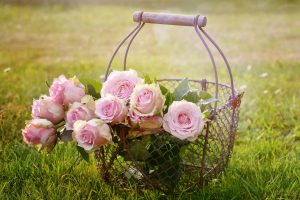 Keeping your lawn green shouldn’t cost as much green as we throw at it. Many of us are unknowingly wasting money in our lawn and garden doing things we’ve always done, but never thought about as being money-wasters. Here are, in our opinion, the seven worst ways people are wasting money while maintaining their lawn and garden.
Keeping your lawn green shouldn’t cost as much green as we throw at it. Many of us are unknowingly wasting money in our lawn and garden doing things we’ve always done, but never thought about as being money-wasters. Here are, in our opinion, the seven worst ways people are wasting money while maintaining their lawn and garden.
Buying Mature Plants – It takes time and care to raise a plant, and if you buy a fully-grown plant, shrub or tree from a nursery, the effort that they have put in to the raising of the plant is going to cost you. Young plants will be cheaper, and will require no more effort to raise than you will need to maintain mature plants.
Replacing Outdoor Furniture and Equipment – It might seem like a real pain, but it is often much less expensive in the short and long run to repair furniture and equipment. A coat of paint and some nails can fix up an old picnic table and make it look almost brand new.
Planting Annuals – Really just a lot of common sense here – planting one bulb or seeds that return year after year, or paying the same amount for new seeds, bulbs, and plantings every year? Simple, really, and many perennials can provide the same level of decoration as annuals. An additional advantage is that, after a few years, a mature plant can be split off and replanted elsewhere, meaning you get a consistently renewing source.
Buying Compost Instead of Making Compost -In this case, you are wasting money in two ways. You’re throwing away compostable goods that you have paid for and could get more use out of, and then you’re paying for compost made up of some of those goods.
Buying Plants in the Spring and Summer – With nurseries trying to cut as much stock as possible before they close for the winter, you can often get plants in the late summer and on through fall at a fraction of the cost as early in the year. Unless you live in extremely cold areas, you can usually plant up through October.
Not Staying Native – Native plants are used to the soil and weather in the area, so they’ll need less attention and less nutrients to thrive. Bringing in plants from outside of the climate means you’ll need to purchase feed and pesticides. Native plants also tend to be drought-resistant, so you won’t be wasting money watering them should you get hit by a drought.
Too Much Watering and Mowing – You water the grass to make it grow, then you cut it. Do less of both, and you won’t have to pay for as much water, nor will you have to pay for as much gas or electric to power your mower. Mow strategically, letting the grass grow long during dry periods.
By using at least some of these hints, you’ll stop wasting money on your lawn and find you have more to spend elsewhere, which is something that everyone can get behind.






